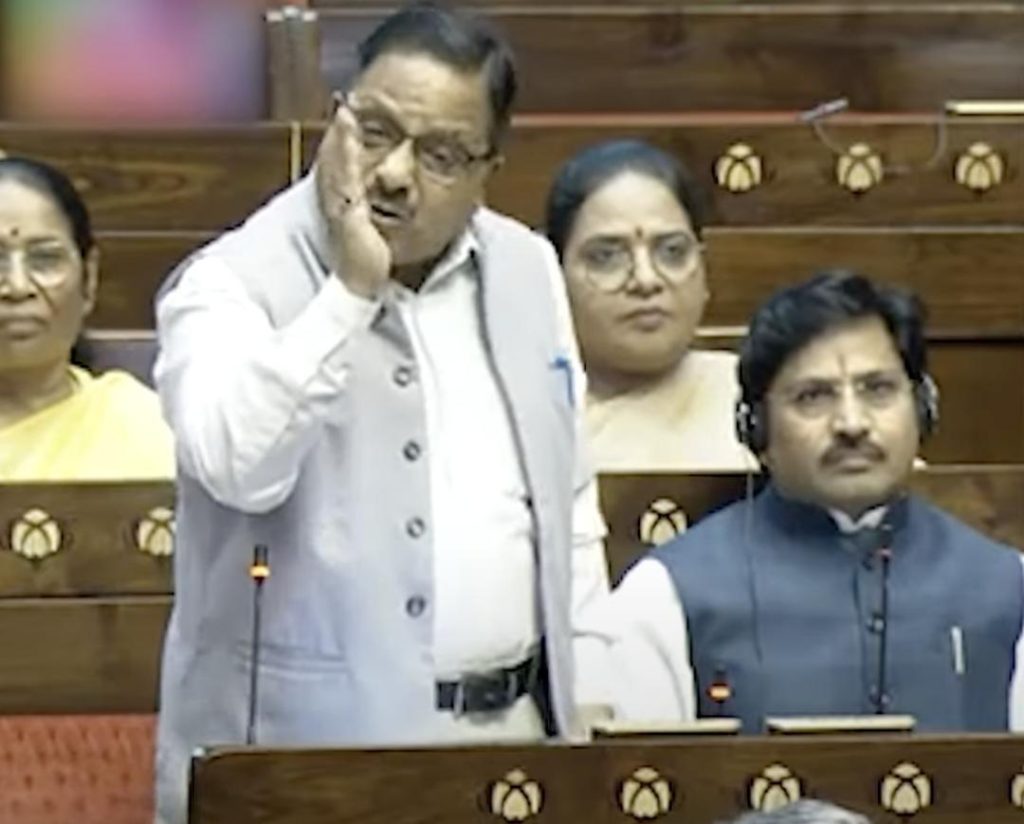
Title: Should I Read the Quran and Tell You What’s Written in It: BJP MP Radha Mohan Das on Waqf Bill
In a recent discussion on the Waqf Bill in the Indian parliament, a BJP MP, Radha Mohan Das, raised an interesting point that has sparked a lot of debate and controversy. While debating the bill, Das asked if he should read the Quran and tell the nation what is written in it. This statement has left many people wondering what he meant by it and what implications it may have.
For those who may not be familiar with the context, the Waqf Bill is a proposed legislation that aims to reform the waqf system in India. Waqf refers to a religious endowment or a charitable trust that is used to support the Muslim community. The bill seeks to make the waqf system more transparent and accountable by introducing measures such as registration of waqf properties, creation of a waqf authority, and regulation of waqf committees.
During the discussion on the bill, Das made his statement, saying, “The Quran says that even if one rupee is given to anyone, there should be a written record…And you say you have so many properties without a record.” He was referring to the Waqf Board’s alleged lack of transparency and accountability in managing its properties.
Das’s statement has been widely reported in the media, and many people have taken to social media to express their thoughts and opinions on the matter. Some have applauded Das for his boldness in questioning the Waqf Board’s accountability, while others have criticized him for what they perceive as an attempt to proselytize and disrespect the Quran.
So, what does the Quran actually say about written records, and what implications does Das’s statement have for the Waqf Bill and the Muslim community in India?
To understand the context of Das’s statement, it is essential to know what the Quran says about written records. In the Quran, there are several verses that emphasize the importance of written records and documentation in financial transactions and charitable donations. For example, Surah Al-Baqarah, Verse 282, says, “O ye who believe! When ye deal with each other, in transactions involving future obligations in a fixed period of time, reduce them to writing. Let a scribe write down faithfully as between the parties, and let them (themselves) fear Allah their Lord, and add nothing unto it, either intentionally or mistakenly, besides that which is written in it.”
This verse emphasizes the importance of written records in financial transactions, especially those involving future obligations. In the context of the Waqf Bill, Das’s statement seems to suggest that the Quran requires written records in all financial transactions, including those related to waqf properties.
However, it is important to note that the Quran also emphasizes the importance of oral traditions and the witness of two righteous men in certain situations. For example, Surah Al-Baqarah, Verse 282, also says, “And call in to witness two witnesses, out of your men. And if there be not two men, then a man and two women, such as ye choose, for witnesses, so that if one of them erreth, the other of the two may correct him, and wisdom among you is more important.”
This verse suggests that oral traditions and the witness of two righteous men can also be reliable forms of evidence in certain situations.
In the context of the Waqf Bill, Das’s statement may be seen as an attempt to use the Quran to justify the requirement of written records in all waqf transactions. However, this interpretation may be too narrow and overlooks the broader context of the Quranic verses.
Moreover, the Quran is a sacred text that is revered by Muslims worldwide. To use it to justify a particular political or legislative agenda may be seen as an attempt to misuse or exploit the text for political gain.
Conclusion:
In conclusion, Radha Mohan Das’s statement about reading the Quran and telling the nation what is written in it has sparked a lot of debate and controversy. While Das’s statement may be seen as an attempt to use the Quran to justify the requirement of written records in waqf transactions, it is essential to consider the broader context of the Quranic verses and the implications of using the Quran in this way.
Ultimately, the Waqf Bill should be evaluated on its merits, taking into account the concerns and interests of all stakeholders, including the Muslim community. The bill should aim to promote transparency, accountability, and fairness in the management of waqf properties, while also respecting the religious sensitivities and cultural practices of the Muslim community.
Sources:



